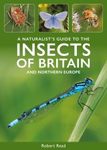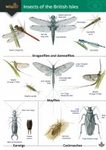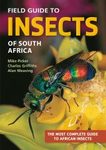About this book
Research in insect population dynamics is important for more reasons than just protecting forest communities. Insect populations are among the main ecological units included in the analysis of stability of ecological systems. Moreover, it is convenient to test new methods of analysing population and community stability on the insect-related data, as by now ecologists and entomologists have accumulated large amounts of such data. In Forest Insect Population Dynamics, Outbreaks, and Global Warming Effects, the authors analyse population dynamics of quite a narrow group of insects – forest defoliators. It is hoped that the methods proposed herein for the analysis of population dynamics of these species may be useful and effective for analysing population dynamics of other animal species and their effects and role in global warming.
What can insects tell us about our environment and our ever-changing climate? It is through studies like this one that these important answers can be obtained, along with data on the insects and their behaviours themselves. The authors present new theories on modelling and data accumulation, using cutting-edge processes never before published for such a wide audience. Forest Insect Population Dynamics, Outbreaks, and Global Warming Effects presents the state-of-the-art in the science, and it is an essential piece of any entomologist's and forest engineer's library.
Contents
Authors ix
Introduction xi
1 Population Dynamics of Forest Insects: Outbreaks in Forest Ecosystems 1
2 Ways of Presenting Data on Forest Insect Population Dynamics 17
3 The Effects of Weather Factors on Population Dynamics of Forest Defoliating Insects 53
4 Spatial and Temporal Coherence of Forest Insect Population Dynamics 79
5 Interactions Between Phytophagous Insects and Their Natural Enemies and Population Dynamics of Phytophagous Insects During Outbreaks 101
6 Food Consumption by Forest Insects 113
7 AR- and ADL-Models of Forest Insect Population Dynamics 139
8 Modeling of Population Dynamics and Outbreaks of Forest Insects as Phase Transitions 183
9 Forecasting Population Dynamics and Assessing the Risk of Damage to Tree Stands Caused by Outbreaks of Forest Defoliating Insects 207
10 Global Warming and Risks of Forest Insect Outbreaks 233
Conclusion 251
References 255
Index 285
Customer Reviews
Biography
Alexander S. Isaev, D.Sc. (Biology), Moscow; Full Member of the Russian Academy of Sciences (RAS). The author of more than 300 published studies, including over 20 monographs on forest ecology and forest entomology. Awards: Gold Medal of the International Union of Forest Research Organizations (IUFRO), V.N. Sukachev Medal of RAS, and IUFRO George Varley Award for Excellence in Forest Insect Research.
Vladislav G. Soukhovolsky, D.Sc. (Biophysics), Professor, Krasnoyarsk. An expert in mathematical modeling of complex biological, ecological, social, and political systems. The author of over 500 published studies, including 16 monographs.
Olga V. Tarasova, D.Sc. (Agriculture), Professor, Krasnoyarsk. An expert in forest entomology. The author of over 150 published studies, including six monographs. Award: V.I. Vernadsky Award for Excellence in Ecological Education.
Elena N. Palnikova, D.Sc. (Agriculture), Professor, Krasnoyarsk. An expert in forest entomology. The author of over 100 published studies, including two monographs.
Anton V. Kovalev, Ph.D. (System Analysis), Krasnoyarsk. An expert in system analysis of ecological processes. The author of over 100 published studies, including one monograph.





























